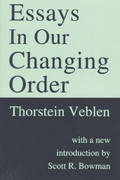Question
question 54: Which of the following is considered a basic economic question? What are the most advantageous terms of trade? When does marginal cost equal
question 54:
Which of the following is considered a basic economic question?
What are the most advantageous terms of trade? When does marginal cost equal marginal benefit? Which economy enjoys a lower opportunity cost for this good? What is essential knowledge to pass on to the next generation? What goods and services should be produced?
Question 53
What will happen to the market supply curve of gadgets if a new gadget producer enters the market?
It will not change. It will become more elastic. There is insufficient data to determine. It will shift right at every price with more output supplied. It will shift left at every price with less output supplied.
question 51:
Which of the following would cause the demand curve for milk to shift to the right? Assume it is a normal good.
The number of people who cannot drink milk increases. A major economic downturn lowers the average household income. The price of one of its substitutes goes down. A significant number of people move into the market. News of a new technology in the milking process makes consumers expect prices to lower soon.
Question 50 A firm produces an allocatively and productively inefficient output at its profit-maximizing quantity. Which of the following statements could explain this scenario?
It has market power and a barrier to entry into its market. It has no market power and no barriers to entry into its market. It is operating with diseconomies of scale. It has symmetric information between all consumers and producers in its market. It sells a product that is indistinguishable from its competitors.
Question 46 A market in which private businesses do not pay all of the production costs themselves represents a ________ and will produce ________ than the socially optimal quantity.
negative externality; less negative externality; more positive externality; more positive externality; less natural monopoly; less
Question 47 A price-taking firm evaluates its production costs and revenue and decides it will operate in the short run and can stay in the market in the long run without conditions changing. Which of the following must describe the firm's short-run production?
Average variable cost > Price < Average total cost Average variable cost = Price = Average total cost Average variable cost < Price < Average total cost Price Average total cost Price > Average total cost
Question 48
Economic theory teaches that a consumer's quantity demanded may not change in response to a lower price when
consumers are not always rational not all consumers seek to maximize their utility per dollar their demand may be perfectly inelastic they do not consider the lower price an incentive to consume their demand may be perfectly elastic
Step by Step Solution
There are 3 Steps involved in it
Step: 1

Get Instant Access to Expert-Tailored Solutions
See step-by-step solutions with expert insights and AI powered tools for academic success
Step: 2

Step: 3

Ace Your Homework with AI
Get the answers you need in no time with our AI-driven, step-by-step assistance
Get Started


